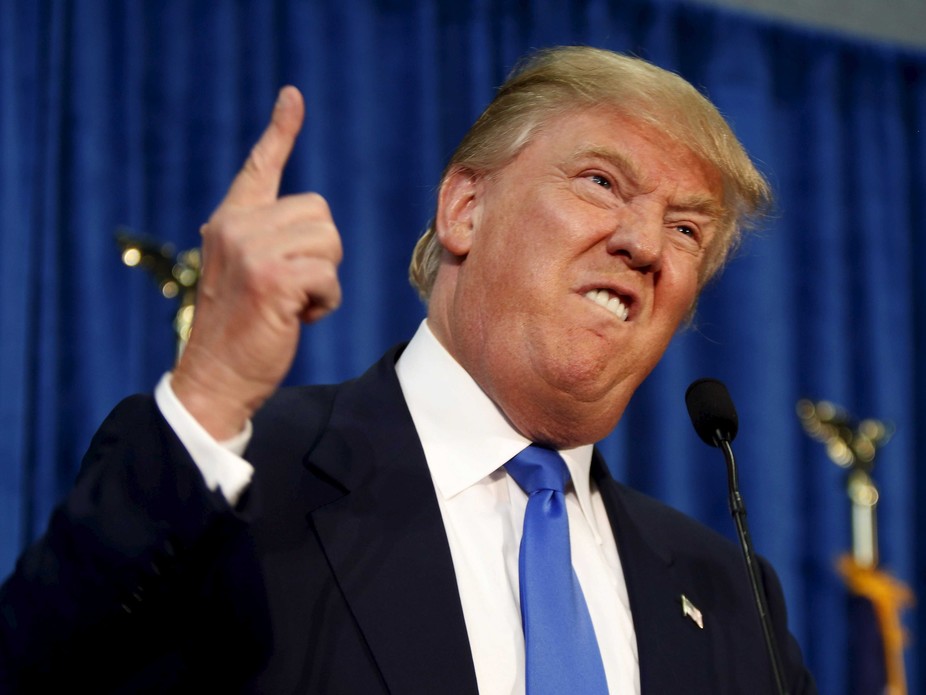Donald Trump, business mogul and B-list celebrity-turned-political wonder, has somehow seized the imaginations of a shocking number of Americans. His brass and confrontational style has won him the sympathy of the disenfranchised, the paranoid and, in his own words, the “poorly educated”. In his tireless attempts to grab headlines, Trump has managed to insult women, Muslims, Parisians, his fellow contenders for the Republican nomination and the Pope.
And then, of course, there are the original victims of his scorn: Mexicans, of whom I am one.
To an extent, I understand Trump’s outburst against us. After all, he’s trying to portray himself as a tough, no-nonsense maverick who “tells it like it is”. More often than not, however, this unyielding interpretation of the world is premised on a zero-sum understanding of politics (not to say life in general). For Trump there are only “winners” and “losers”. When seen through this prism, the world looks like a scary but rather simple place: for “us” to win, “they” have to lose.
As such, Trump’s inflammatory statements at the launch of his campaign were, to an extent, to be expected: if it wasn’t the Mexicans, it would have been someone else. Racism and bigotry are, of course, never to be taken lightly, but that doesn’t mean they’re uncommon. And so, in Mexico, his proposal to build a wall along the border was met with only moderate astonishment.
What’s more, when he proposed this ludicrous “policy” back in October 2015, a Trump presidency seemed like a rather improbable prospect, and he was seen in Mexico as just another outrageous “gringo” making hurtful claims about our country. It was merely another indication of how our northern neighbour tends to see us with mistrust and contempt – but nothing to be taken seriously.
And after all, as much as we resent the US, we’re also forever jealous of the comparatively calm tenor of politics north of the border. It’s hard for us to imagine that such a demagogue could ever become the president of the United States. Aren’t brazen populism and caudillismo (strongman-style leadership) distinctively Latin American traits?
And now that Trump seems to be poised to win the Republican nomination and a demagogue’s presidency seems like a real prospect, however remote, shouldn’t we be terrified?
The short answer is no.
Wall in vain
A Trump victory on November 8 would be a sad day for Mexico, but no more so than for the rest of the world – and above all, for the US itself. We have nothing to fear from his demagogy and populist rhetoric. Having suffered these evils for the best part of our independent history, we understand as well as any other nation that populist rhetoric is just that: rhetoric.
Trump’s plan to build a wall between the two countries, for instance, isn’t even that radical. In 2006, the Secure Fence Act was passed, outlining the militarisation of the border and the construction of a fence in order to gain “operational control” – that is, “the prevention of all unlawful entries into the US including entries by terrorists, other unlawful aliens, instruments of terrorism, narcotics and other contraband”.
The much-maligned fence, however, soon became incredibly porous, and the Bush administration found out the hard way that “gaining operational control” of a 2,000-mile land border that runs through very heavily populated as well as incredibly remote areas is easier said than done.
In any case, a fence covering roughly a third of the border was certainly never going to do it. The Mexican-American border is the busiest in the world, with about 300m individual crossings into the US each year. But even set against this pretty low precedent, the idea that Trump’s wall (whether ten feet taller or two feet shorter) is somehow going to stop illegal immigration and drug smuggling is beyond inane.
But Trump knows this, and so do those of us south of the border. The nub of the problem, for Trump rather than Mexico, is the insistence that Mexico will pay for the wall.
Losing big
How could a Trump administration force a sovereign government to do this? As Mexico’s former president, Vincente Fox, put it: “I’m not going to pay for that f***ing wall! He should pay for it. He’s got the money.” So another solution must be found.
The most obvious would be to either put tariffs on Mexican imports or tax remittances back to Mexico. But would Trump tax every transfer of money to Mexico, or just transfers from illegal immigrants? Both present huge problems of implementation, especially the latter. Would he force everyone sending money to Mexico to submit their documents for inspection? How would he stop people from buying prepaid visa cards? And how long would it take for money to find its way to Mexico via a third country, or indeed through other illegal means?
What about taxing all money transfers to Mexico? That may sound easier to implement, but in reality it is a policy that simply cannot be adopted. A levy on financial transactions, just as the introduction of tariffs, would be a clear violation of a binding international treaty, the much-hated North American Free Trade Agreement, which clearly prohibits this sort of discrimination.
But perhaps more importantly, this would have serious implications for business and trade relations between the two countries. That would certainly hurt Mexico, but it’d hurt the US more. In particular, it would hurt the Americans who really matter to Trump: those who are as wealthy as (or even wealthier than) he is.
And while a Trump presidency would obviously strain the relationship between the two countries, it would also strain relationships between the US and pretty much every other country in the world.
So let’s think like Trump. No matter how bad things would be for Mexicans with Trump in the White House, the consequences can’t be nearly as bad as for our neighbours up north. And in Trump’s binary terms, that can only mean good news for Mexico.
 Pablo Calderon-Martinez does not work for, consult, own shares in or receive funding from any company or organization that would benefit from this article, and has disclosed no relevant affiliations beyond the academic appointment above.
Pablo Calderon-Martinez does not work for, consult, own shares in or receive funding from any company or organization that would benefit from this article, and has disclosed no relevant affiliations beyond the academic appointment above.
Pablo Calderon-Martinez, Lecturer in Spanish , Aston University
This article was originally published on The Conversation. Read the original article.




 JPMorgan Lifts Gold Price Forecast to $6,300 by End-2026 on Strong Central Bank and Investor Demand
JPMorgan Lifts Gold Price Forecast to $6,300 by End-2026 on Strong Central Bank and Investor Demand  BTC Flat at $89,300 Despite $1.02B ETF Exodus — Buy the Dip Toward $107K?
BTC Flat at $89,300 Despite $1.02B ETF Exodus — Buy the Dip Toward $107K? 

































